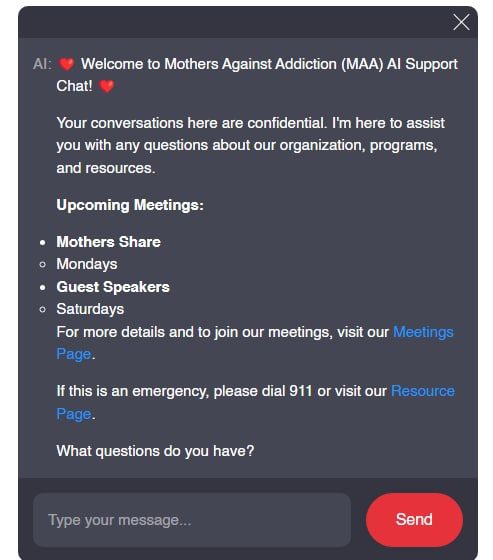
Understanding Addictions: The Hidden Crisis
Addictions are complex conditions that significantly impact individuals and their families. We’re facing an often-overlooked crisis in society today; the rise in drug addiction—particularly opioids, alcohol, and stimulants—has reached alarming levels, becoming a public health emergency. Over 21 million Americans grapple with some form of addiction. This staggering number emphasizes the urgent need to understand the multifaceted nature of these struggles and their far-reaching consequences. Families, caught in the turmoil of loved ones battling addiction, experience emotional distress that no one should have to endure.
As parents and caregivers, it’s heart-wrenching to witness our children spiral into substance abuse. We grapple with feelings of helplessness and often find ourselves confused about how best to provide support. Emotions can run high, leading to misunderstandings or anger issues within the household. The impact of addiction is relentless, affecting not just the individual but everyone connected to them. It’s a tangled web that demands our attention and compassion.
At Mothers Against Addiction, we understand the unique challenges that parents face when their children struggle with addiction. We offer resources and community support, empowering families with the coping skills necessary to navigate this difficult journey. Together, we can shine a light on these dark times, showing that recovery is possible when we unite in understanding and support.

Top 7 Addictions That Tear Families Apart
1. Opioid Addiction
The opioid epidemic has devastated families across the nation. Prescription drugs like OxyContin, first widely branded by Purdue Pharma, have led to severe dependency issues, paving the way for heroin and fentanyl abuse. Families often face not only the loss of financial stability but also the emotional turmoil of watching loved ones spiral out of control. The stigma attached to addiction can further isolate families, making it difficult to seek the help they need.
2. Alcoholism
Alcohol is socially accepted, yet its potential for addiction is profound. According to the National Institute on Alcohol Abuse and Alcoholism, nearly 15 million people have an alcohol use disorder in the U.S. Families that struggle with alcoholism frequently experience heightened tension, anger issues, and emotional upheaval. These relationships often become strained, and parents may feel overwhelmed, unsure of how to set boundaries or communicate effectively about their loved one’s drinking.
3. Stimulant Abuse
Stimulants like cocaine and methamphetamine can lead to drastic behavioral changes in those addicted. The chaos that comes from stimulant abuse creates an environment filled with fear and instability, tearing families apart through distrust and conflict. Loved ones may feel compelled to pick up the pieces, but frustration can mount when they realize that recovery isn’t straightforward.
4. Nicotine Addiction
Despite the decline in tobacco use in certain populations, nicotine addiction remains prevalent, especially with the rise of vaping products like JUUL. These products have attracted younger users, presenting challenges for families unprepared to tackle the implications of nicotine use. Parents often find themselves struggling to communicate the health risks and societal pressures that accompany these new forms of addiction, leading to further contention at home.
5. Prescription Drug Misuse
Beyond opioids, many individuals misuse medications like Xanax or Adderall. The urging to excel academically or in the workplace can fuel unhealthy coping habits, creating emotional distress within families. Parents may have to confront their own fears and uncertainties, at times feeling ill-equipped to support their children adequately. The urgent need for open discussions about appropriate medication use cannot be overstated.
6. Gambling Addiction
While gambling is not a substance, the impact it can have on families is just as devastating. The growing accessibility of online gambling platforms has propelled the rise of gambling addiction, leading individuals to rack up debts that threaten family finances. Many families find their relationships tested under the enormous weight of financial strain and betrayal, and the emotional distress associated with it can be just as powerful as any substance addiction.
7. Food Addiction
Food addiction often flies under the radar but profoundly affects emotional health and self-esteem. Families facing a loved one’s eating disorder may experience unique challenges as they navigate feelings of helplessness and fear. The discussions surrounding body image can foster an environment rife with negativity, complicating relationships as anger issues and resentment bubble to the surface.
The Impact of Addictions on Family Dynamics
Each type of addiction brings its own set of unique challenges. Emotional distress pervades family relations, often resulting in anger issues that can lead to intense conflict. Families may find themselves in repeated arguments over the financial burdens associated with addiction, emotional pain from disappointments, and feelings of hopelessness as they endeavor to support their struggling loved ones. Caregivers often experience significant levels of stress, as their empathy for their child can teeter into exhaustion or frustration.
The dynamics can get more complicated when families lack effective coping skills. Many family members might feel like they’re “walking on eggshells,” doing their best to avoid triggering a loved one’s addiction. As a result, effective communication can dissolve, creating an isolated environment where emotions fester. It becomes crucial for families to foster open lines of communication, encouraging honest dialogue about fear, anger, and disappointment without casting judgment.
Innovative Approaches to Support Families
Programs like Al-Anon, supporting families of alcoholics, and Nar-Anon, for families of drug users, highlight the necessity of addressing the emotional distress stemming from addiction. These platforms help family members develop effective coping skills while providing a sense of community. Creative representations such as art therapy and family counseling offer avenues for healing and rebuilding relationships, which can often feel irreparably damaged.
Recognizing the signs of addiction early is vital to foster disengagement from cycles of dependency. Developing open dialogues surrounding addictive substances and their dangers from an early age is essential. By being educated and creating solid support systems, families can effectively combat these addictions that challenge lives.
Moving Forward Together
Addiction’s effects reach beyond just the individual—it strains family dynamics, creating emotional despair, anger, and conflict. By enhancing awareness and learning to foster effective coping skills, families can confront the complexities surrounding addiction as a united front. Innovative approaches, community support, and proactive measures will pave the way toward healing.
Each day brings new opportunities to rise above addiction’s grip. Through empowerment and education, families can construct an environment where healing is an attainable goal. Mothers Against Addiction stands as a partner in this journey, advocating for understanding, compassion, and a united effort to face these challenges head-on. Together, let’s build a future where families thrive, free from the besetting shadows of addiction.
For additional resources about coping with the emotional distress tied to addiction, visit our page on anxiety, learn about the effects of smoking while pregnant, understand the implications of the Hipaa law, and recognize the severity of a Hipaa violation. Together, let’s advocate, educate, and heal as a community dedicated to fighting against the stains of addiction that challenge our lives.
Addictions: The Silent Struggle
The Hidden Truths About Addictions
Addictions come in many shapes and forms, affecting people across the globe. Did you know that addiction can change a person’s brain chemistry, making it harder to say “no” to substances like drugs and alcohol? In an odd twist, even celebrities like Robert Beltran have faced the impact of addiction, showing that this issue doesn’t discriminate. The emotional toll it takes can tear families apart, creating a ripple effect that echoes through generations.
Speaking of disruption, the story of Gary Plauche reminds us of how addiction can lead to tragic outcomes. Plauche’s father sought extreme justice due to a wave of despair driven by his son’s struggles, revealing how far-reaching addiction’s tentacles can be. It’s a sobering reminder that families often pay the price, grappling with guilt, shame, and heartache.
Breaking Down Preconceived Notions
Another interesting tidbit: more than half of all Americans have been affected by addiction in some way. Now, consider the fascinating life of Anne Stringfield, a talented writer and editor who knows well how personal background can influence one’s perspective on addiction issues. Stringfield’s experiences might resonate deeply with families who are trying to understand these turbulent waters.
So, How old Is Mitch mcconnell, you ask? He’s currently in his early 80s, which highlights how generational differences can shape attitudes towards addiction. Over the years, awareness and resources have shifted dramatically, creating new avenues for support. Thankfully, figures like Kylie Minogue And Kylie Minogue and( professionals in addiction recovery have brought the topic of addiction into mainstream discussions, making it less taboo to confront these difficult challenges head-on.
The Impact on Family Dynamics
At the end of the day, addiction doesn’t just affect the individual; it heavily impacts family dynamics. It can lead to conflicts that tear loved ones apart, leaving behind feelings of isolation and despair. But there’s hope; knowledge and understanding can pave the way to healing. Families can find resources, connect with support networks, and ultimately work towards rebuilding their relationships—it’s never too late to start mending the frayed bonds that addiction has strained.





























